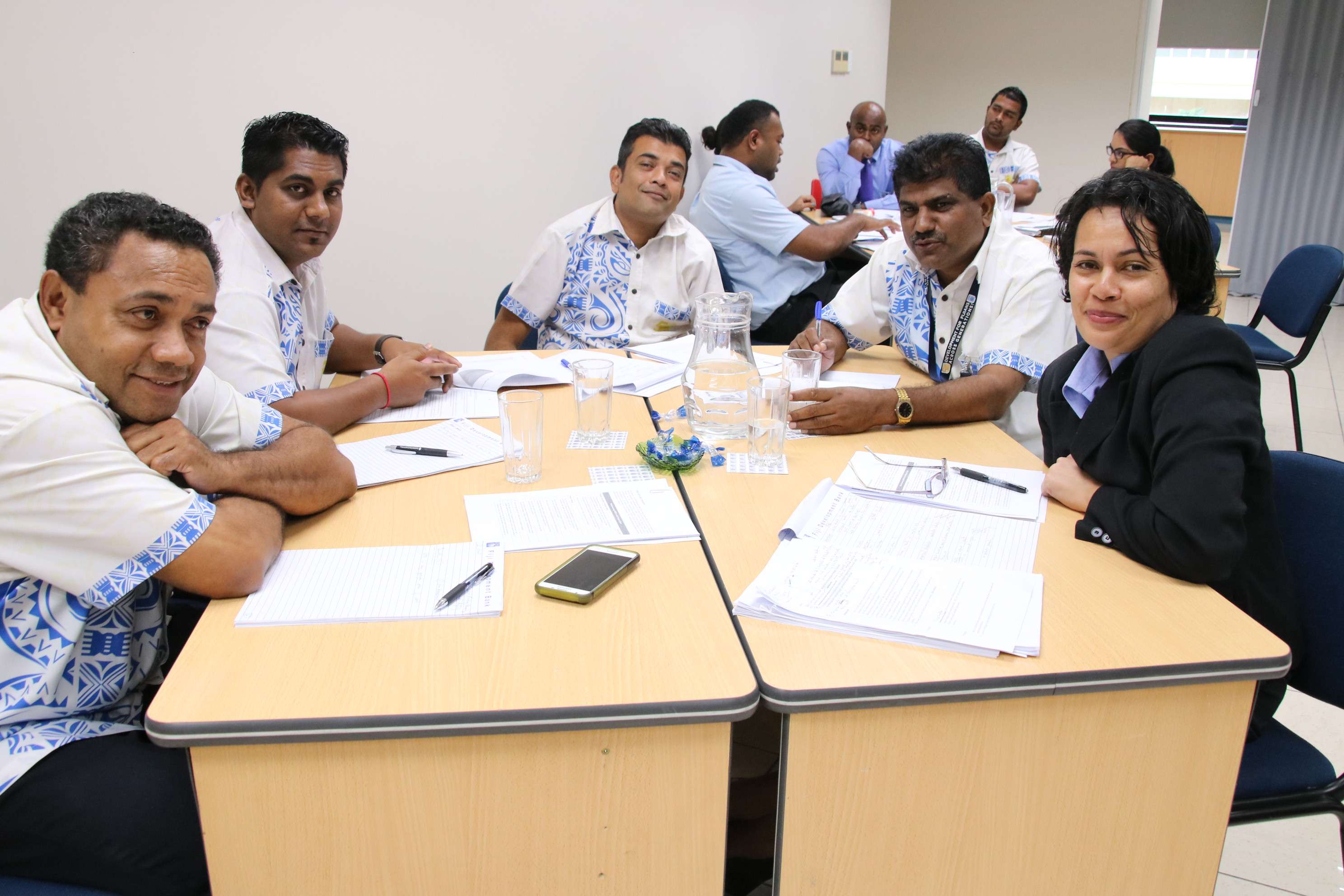
DT Global works around the world to provide a continuum of support by delivering solutions across five principal development areas: economic growth, environment and infrastructure, human development, governance, and stabilization and transition. Through USAID’s Ready project, DT Global supports vulnerable Pacific Island countries to obtain climate financing from international climate finance organizations, including the Adaptation Fund, the Global Environment Facility, and the Green Climate Fund.
In 2018 in Fiji, the Ready project team assisted the Fiji Development Bank to become the first development bank in the region to achieve accreditation, enabling it to have direct access to the Green Climate Fund. DT Global’s team worked closely with the Fiji Development Bank to meet the Green Climate Fund’s accreditation condition requiring a Gender Equity and Social Inclusion Policy. Ready’s Gender and Social Inclusion technical specialist worked hand in hand with management and staff of the bank to draft their new, compliant policy.

To ensure that staff fully understood the new policy and were prepared to implement the new guidelines throughout all aspects of bank operations, DT Global staff facilitated an FDB-GCF Champions workshop with selected participants from FDB branches. This workshop was an innovative learning opportunity for bank staff to build capacity and learn how best to apply gender and social inclusion concepts and policies when assessing applications for loans and grants.
The Fiji Development Bank’s Gender and Social Inclusion Policy is based on strong global evidence that climate change adaptation and disaster risk management initiatives are more sustainable, equitable, and effective when gender and social inclusion factors are fully mainstreamed in project design, implementation, and monitoring. By recognizing that climate change and disasters affect women, men, children, the elderly, people with disabilities, and those living in isolated and/or under-serviced areas in different ways, the Fiji Development Bank acknowledges that gender relations, roles, and responsibilities can significantly influence women and men’s access to and control over information, decisions, assets and resources which, in turn, impact how development benefits are shared.

USAID Ready’s role in assisting Fiji’s key development bank to achieve accreditation demonstrates the importance of innovating organizations towards a globalized community that increasingly recognizes and responds to the varying needs of its community.